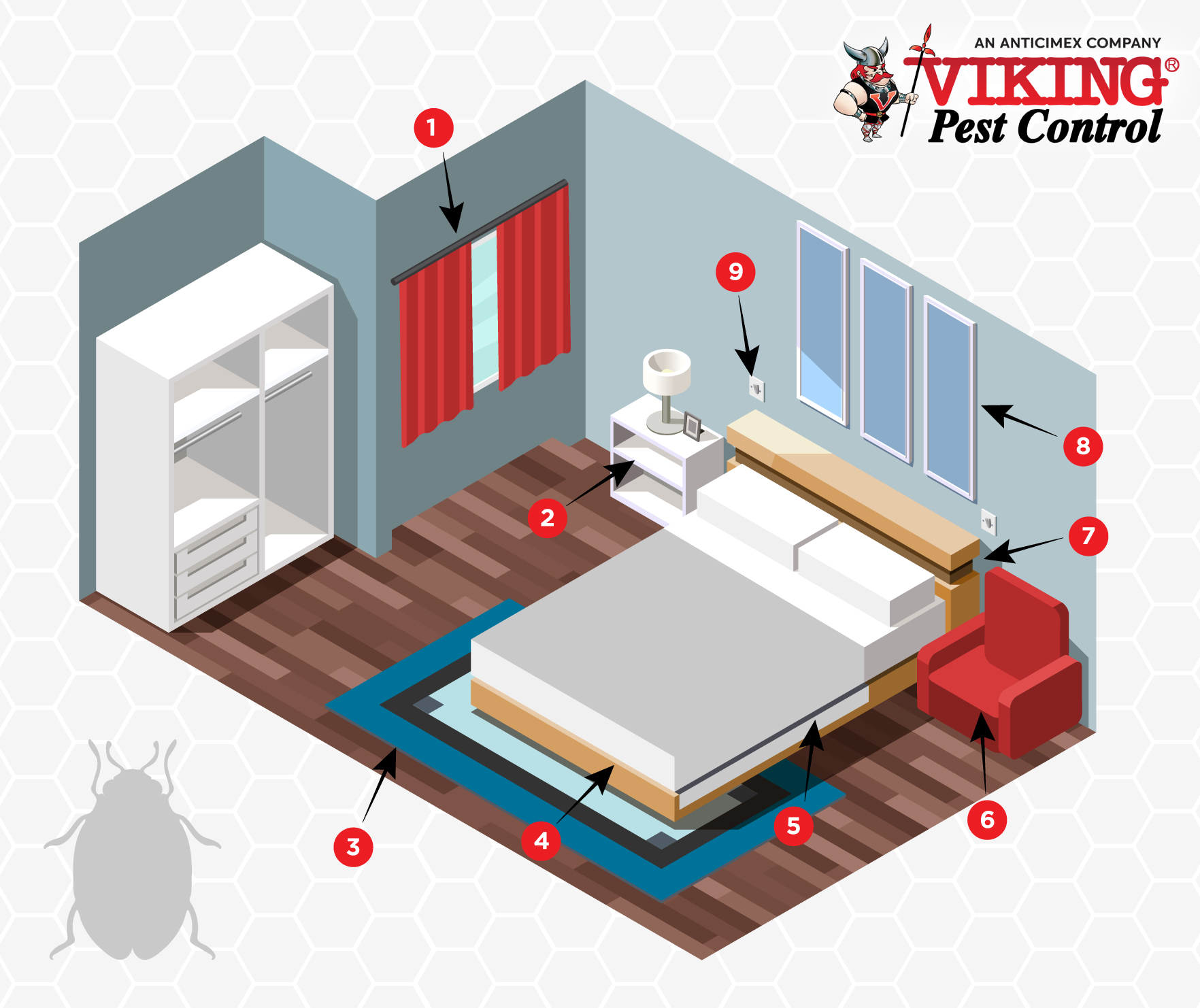Trusted Kings Bug Control Cincinnati OH: Expert Services
Sorts Of Parasite Control: Which Approach Is Right for Your Problem?
When encountered with a pest invasion, the selection of a suitable method for pest control is essential in effectively taking care of the scenario. From chemical treatments to organic remedies, there exists a series of approaches that can be used to deal with different types of pests. Each approach features its own set of factors to consider and benefits, making the decision-making process a nuanced one. Recognizing the nuances of each approach and reviewing their compatibility with the certain insect infestation handy is important for achieving long-term success in bug management. By discovering the different sorts of insect control methods offered, people can make informed choices customized to their special situations, ensuring an extra sustainable and reliable outcome in bug eradication.
Chemical Pest Control
Chemical pest control entails making use of artificial or normally acquired chemicals to take care of and eliminate pest populaces properly. This method is typically used in agriculture, forestry, and property setups to combat a wide variety of bugs, including rats, pests, and weeds. Using chemical pesticides can give fast and targeted services to pest invasions, making it a preferred choice for numerous individuals and businesses.
Among the crucial benefits of chemical parasite control is its ability to swiftly eliminate pests, decreasing the risk of damages to crops, property, and human health. By utilizing specific chemicals that target particular bugs, this approach can properly regulate invasions while lessening harm to beneficial organisms and the environment when used properly.
Nevertheless, making use of chemical pest control likewise increases issues concerning possible negative effects on non-target types, water sources, and human health. It is crucial to adhere to security guidelines, apply chemicals properly, and take into consideration different insect control methods to decrease these threats and make certain sustainable pest monitoring methods.
Organic Bug Control
Biological bug control, also understood as biocontrol, makes use of living microorganisms to manage and decrease insect populaces normally. By using the pest's all-natural predators or microorganisms, organic parasite control offers a environmentally friendly and sustainable remedy to pest monitoring.

Mechanical Insect Control
Utilizing manual and physical approaches to manage parasite populations, mechanical parasite control provides an alternate method that does not rely upon using living microorganisms or artificial chemicals. This method involves using barriers, catches, or other tools to physically discourage or eliminate parasites. By obstructing parasite entry points or setting up catches to catch them, mechanical parasite control can effectively reduce problems without introducing chemicals into the environment.
One usual example of mechanical bug control is the usage of mesh screens on doors and home windows to avoid insects from getting in structures. This straightforward immediate pest control yet reliable approach acts as a physical obstacle, maintaining pests out while enabling for proper ventilation. In addition, tools like mousetraps, fly swatters, and ultrasonic repellents drop under the mechanical pest control group.
While mechanical pest control methods can be labor-intensive and call for normal tracking and maintenance, they provide a sustainable and eco friendly service for handling parasite problems. By incorporating various mechanical techniques, homeowner can create a comprehensive bug control approach that minimizes reliance on chemical pesticides.
Physical Parasite Control

Some common physical pest control methods consist of the use of obstacles such as internet or screens to avoid parasite access, traps to catch and remove pests, and hand-picking to literally remove bugs from plants or frameworks. Furthermore, methods like warm therapies can be used to regulate parasites like bed insects by raising the temperature to degrees that are deadly to the pests.
Physical bug control is specifically valuable in integrated insect management (IPM) methods, where multiple parasite control techniques are incorporated for efficient bug monitoring while decreasing the use of chemicals. By utilizing physical insect control strategies, people can efficiently deal with bug infestations with minimal environmental effect.
Integrated Bug Monitoring
When executing physical parasite control methods as component of parasite monitoring methods, Integrated Pest Management (IPM) becomes a detailed strategy that leverages various methods to properly regulate pest populations. IPM concentrates on long-term prevention of pests through pest c a combination of organic, social, physical, and chemical tools customized to certain insect issues. By incorporating multiple control strategies, IPM intends to minimize the risks connected with insects while likewise reducing reliance on chemical options.
One trick element of IPM is the focus on monitoring and analyzing pest populaces to identify the most appropriate control methods. This proactive strategy allows for early treatment and targeted methods, resulting in more effective parasite monitoring. In addition, IPM promotes environmentally friendly practices by focusing on non-chemical control methods and only utilizing chemicals as a last resort.
Verdict

By making use of the pest's natural predators or virus, biological pest control uses a sustainable and eco friendly remedy to pest administration. - Kings Bed bug exterminator Cincinnati
Using physical and hand-operated methods to handle parasite populations, mechanical insect control supplies an alternate technique that home pest services does not depend on the usage of living organisms or synthetic chemicals.A reliable method to managing insect populaces without depending on chemical or biological methods includes the use of physical bug control strategies.When implementing physical pest control methods as component of parasite administration techniques, Integrated Insect Administration (IPM) arises as a thorough method that leverages different methods to successfully regulate pest populations. Chemical insect control entails the use of pesticides, organic insect control utilizes natural predators, mechanical insect control entails physical obstacles, physical parasite control consists of trapping or removing pests, and incorporated pest monitoring integrates several methods for an alternative method to pest control.